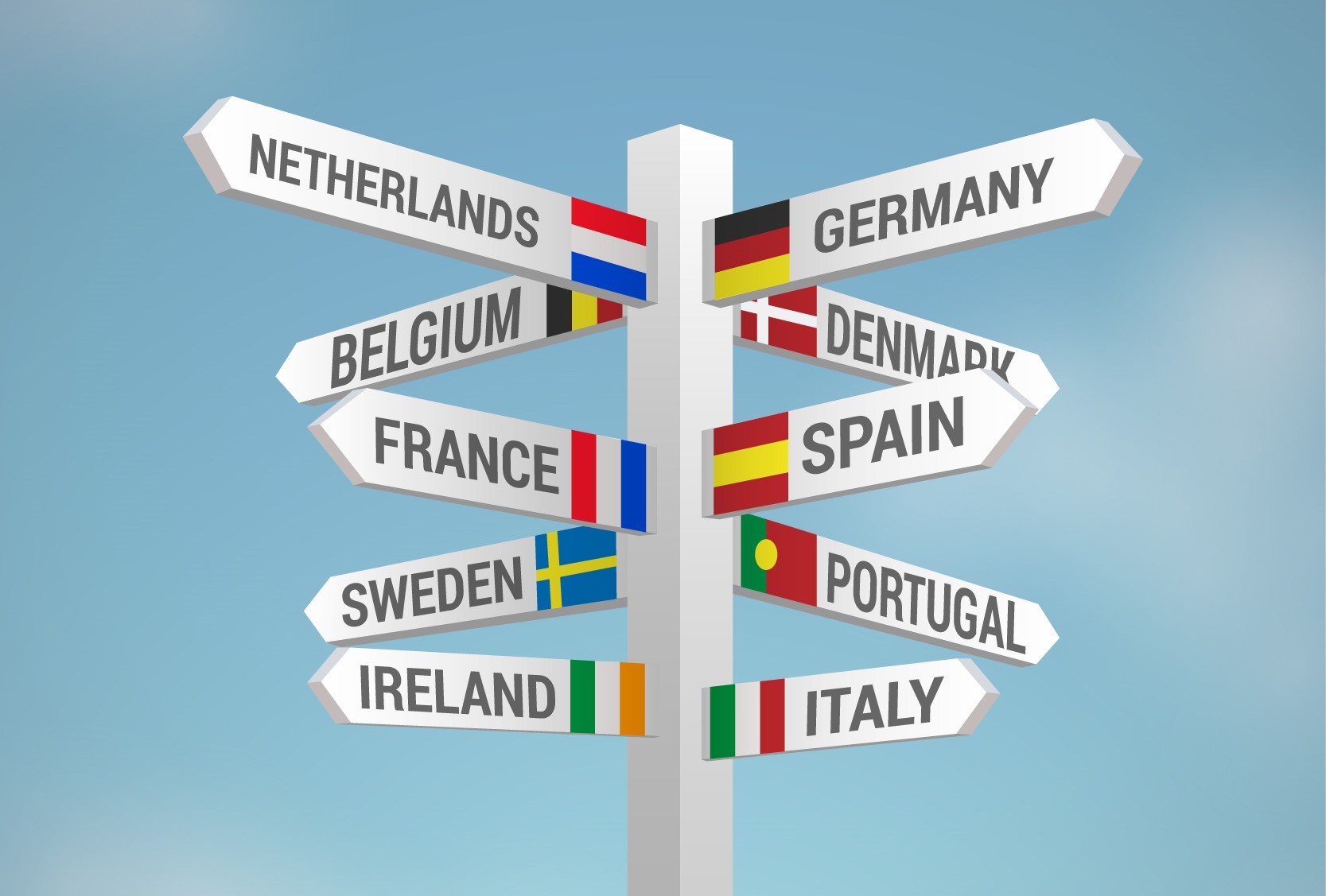Starting a business in Europe requires careful planning, but challenges are inevitable. Success comes from adapting to changes and understanding your market. This guide is for anyone Looking for How to start a business in Europe.
Europe offers exciting opportunities, given the region’s diverse markets, innovation hubs, and robust economic infrastructure. Whether you’re planning to establish a tech startup in Germany or a consultancy in Portugal, understanding the business landscape is essential for success.
Conducting thorough research on your industry and target audience is key to building a solid business plan. Beyond selling a product or service, you’ll need to create a strong brand and attract loyal customers.
By following proven steps from successful entrepreneurs, you can turn your business idea into a reality. Here’s a simplified 10-step checklist to get your business started in Europe.
1. Choose the Right European Country for Your Business

Choosing the best location is key. Some European countries are more business-friendly than others, especially regarding bureaucracy, taxation, and labor costs. Here’s a brief overview of where it’s easiest and most challenging to start a business:
Easiest Countries in Europe for Business:
- Denmark: Known for its streamlined digital processes and quick online registration (can be done in one day), Denmark ranks among the easiest places to start a business in Europe.
- Estonia: With its forward-thinking e-residency program, Estonia allows entrepreneurs to establish a business entirely online without ever setting foot in the country.
- Sweden: Sweden boasts low startup costs, clear regulatory processes, and support for innovation, making it a popular choice for tech startups.
Countries like Estonia and Denmark have become hubs for digital nomads and startups, attracting entrepreneurs with their e-governance initiatives and digital ecosystems.
2. Conduct Thorough Market Research
Understanding your target market is crucial when starting a business in Europe. This involves evaluating local demand, consumer preferences, competitors, and industry trends. Utilize tools like market surveys and focus groups, and look into market research reports specific to the country you’re interested in.
Trend to Watch: European consumers are increasingly conscious of sustainability, making eco-friendly products and services a growing demand in various industries.
3. Create a Detailed Business Plan

A well-crafted business plan will guide your business strategy and operations. Your plan should cover:
- Executive summary
- Market analysis
- Business model
- Sales and marketing strategy
- Financial forecasts
Having a strong business plan is crucial when approaching European banks or investors for funding.
4. Decide on a Legal Structure
Choosing the right legal structure for your business is vital as it impacts your taxes, liability, and legal obligations. The most common business structures in Europe include:
- Sole Proprietorship
- Limited Liability Company (LLC) (popular in most EU countries)
- Corporation
Research country-specific legal structures. For instance, France offers the “Auto-entrepreneur” status for freelancers and small businesses, simplifying taxes and paperwork.
5. Register Your Business
Once you’ve settled on the legal structure, the next step is registration. Most European countries have centralized, online platforms that streamline the registration process. You’ll typically need to:
- Register with the local Chamber of Commerce
- Apply for a tax ID
- Ensure compliance with any sector-specific regulations
Fast Fact: In 2023, Denmark was ranked the easiest country in Europe to start a business, with a one-day registration process entirely online.
6. Set Up a Business Bank Account
Opening a business bank account in Europe helps separate your personal finances from your business transactions. In some countries, you’ll need a local bank account to officially register your business, particularly if you plan to apply for business loans or government grants.
7. Understand Taxation and Accounting Requirements

Taxation policies vary across Europe, and understanding them is crucial to avoid legal issues. Some key points include:
- VAT (Value Added Tax) is common in EU countries, with rates varying by country.
- Corporate tax rates can range from 9% in Hungary to 31% in France.
Consult with a local accountant to ensure compliance and to take advantage of any tax benefits or deductions.
Stat to Consider: Ireland has one of the lowest corporate tax rates in Europe at 12.5%, making it a favored destination for multinational companies.
8. Comply with Labor Laws
If you plan on hiring staff, you need to comply with European labor laws, which are generally pro-employee. This includes understanding regulations regarding:
- Employee rights and contracts
- Minimum wage (which varies by country)
- Social security contributions
The EU promotes workplace safety and fair wages, so be prepared for strict labor regulations in some countries.
9. Get Licenses and Permits

Depending on your industry, you may need specific licenses or permits to operate in certain European countries. For instance, the food and beverage industry may require health and safety permits, while certain services may need professional certifications.
10. Establish a Strong Online Presence
In today’s business landscape, a robust online presence is essential. Invest in creating a professional website, optimizing it for search engines, and leveraging social media to reach a wider audience.
European consumers increasingly rely on digital platforms for shopping and services. A well-optimized website and social media presence can significantly boost your visibility and customer engagement.
Latest Trends in European Business
Europe is currently experiencing a digital transformation across various sectors. Here are some trends to How to Start a Business in Europe:
- Sustainability: Consumers are pushing for eco-conscious products, services, and supply chains. Many startups in Europe are capitalizing on green business ideas, and governments are offering incentives for sustainable initiatives.
- Remote Work & Digital Nomads: Countries like Portugal and Estonia are becoming hubs for remote workers due to their favorable tax policies, digital ecosystems, and e-residency programs.
- Fintech Growth: Europe is becoming a global leader in fintech innovation. Countries like the UK, Germany, and Sweden are home to many fintech startups disrupting the traditional banking sector.
- Tech and Innovation Hubs: Cities like Berlin, Stockholm, and Amsterdam are recognized as tech and innovation hubs in Europe, providing a favorable environment for startups and tech entrepreneurs.
Why Europe is a Great Place to Start a Business?
Starting a business in Europe offers diverse opportunities, thanks to the region’s stable economy, access to 27 EU member states, and a wide range of industries. Whether you’re drawn to the business-friendly policies of Denmark or the innovation hubs in Germany, Europe provides a fertile ground for entrepreneurial success. As you move forward with your business, remember to stay up-to-date with the latest trends and comply with local laws to ensure long-term growth.
Ready to Start Your European Business Journey? Europe offers immense potential for entrepreneurs. By following these steps and staying aware of the latest trends, you can successfully navigate the European business landscape and build a thriving enterprise.


